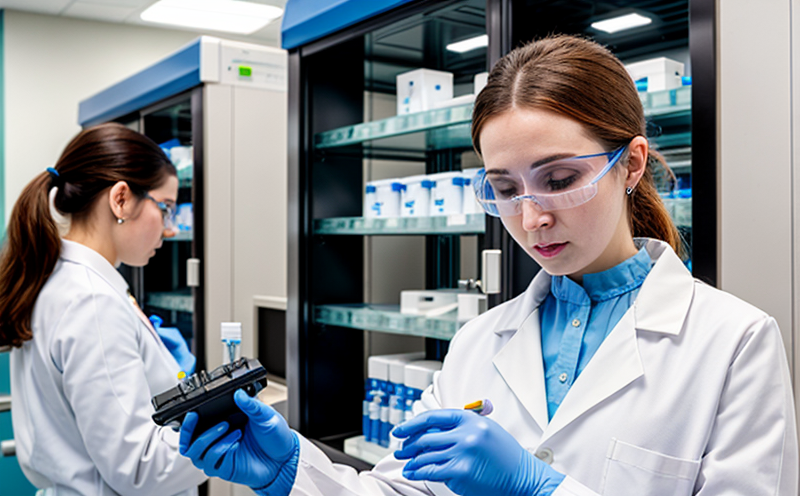Immunogenicity Confirmatory Assay Testing
The Immunogenicity Confirmatory Assay (ICAT) testing is a critical component in the drug development process, particularly for biologics and complex therapeutic proteins. This service ensures that the body's immune system does not generate harmful antibodies against the administered therapy. By detecting and quantifying these antibodies through highly sensitive methods, ICAT helps pharmaceutical companies to identify potential safety issues early in clinical trials.
The testing involves a series of steps starting from the selection of appropriate assay platforms such as ELISA (Enzyme-Linked Immunosorbent Assay), Luminex, or bead-based systems. These assays are designed to detect specific antibodies targeting the therapeutic protein. The process includes detailed specimen preparation and handling, ensuring minimal interference with the test results.
The testing parameters include a wide range of concentrations for the target drug substance as well as positive and negative controls. This ensures robust data generation under various scenarios. Instrumentation used in this service typically includes high-end immunoassay analyzers capable of providing precise quantification of antibody levels.
Acceptance criteria are stringent, requiring that antibodies be identified at a minimum detectable level (MDL) to ensure reliable detection and quantitation. This is critical for the safety and efficacy assessment of biologics.
| Parameter | Description |
|---|---|
| Target Protein | The specific protein being tested for immune response. |
| MDL | The minimum detectable level of antibody in the assay. |
| Specimen Type | Blood serum or plasma samples from subjects. |
In summary, ICAT is a crucial step in ensuring that biologics are safe for human use. It helps pharmaceutical companies to avoid costly delays and potential recalls by addressing safety concerns early in the development process.
- Early detection of immune response antibodies.
- Robust quantification capabilities.
- Highly sensitive assay platforms.
Customer Impact and Satisfaction
The implementation of ICAT services has a significant impact on pharmaceutical companies. By providing early insights into potential immune responses, these services enable companies to make informed decisions about drug development. This leads to more efficient clinical trial processes and reduces the risk of adverse events post-market.
Customer satisfaction is high due to the reliability and accuracy of our testing methods. Our comprehensive approach ensures that all critical aspects of immunogenicity are covered, providing clients with peace of mind. The detailed reports generated from these tests facilitate clear communication between researchers, regulatory bodies, and other stakeholders involved in the drug development process.
The use of advanced instrumentation and experienced personnel contributes to the high quality of our services. This ensures that results are not only accurate but also reproducible, which is essential for meeting regulatory standards.
Competitive Advantage and Market Impact
The ability to accurately assess immunogenicity early in the development process provides a significant competitive advantage. Pharmaceutical companies that can demonstrate robust data on safety and efficacy are more likely to gain regulatory approval faster, which translates into quicker market entry.
In terms of market impact, reliable ICAT testing fosters trust among patients and healthcare providers. This trust is crucial for the acceptance and adoption of new biologics, especially those with high therapeutic value but associated risks. By ensuring safety, these services contribute to a more transparent and reliable drug development environment.
Use Cases and Application Examples
The Immunogenicity Confirmatory Assay Testing service has several key applications:
- Detection of anti-drug antibodies in Phase I-III clinical trials.
- Evaluation of the safety profile of biologics post-market approval.
- Monitoring of patients with known adverse immune responses to guide treatment adjustments.
| Use Case | Description |
|---|---|
| Phase I Clinical Trials | Evaluating the initial safety and tolerability of a new biologic in healthy volunteers. |
| Phase II Clinical Trials | Assessing efficacy and further evaluating safety in a larger group of patients. |
| Post-Marketing Surveillance | Monitoring the long-term effects and safety profile of biologics in real-world settings. |
These applications highlight the versatility and importance of ICAT testing in various stages of drug development and post-market management. The detailed data provided by these tests are instrumental in making informed decisions that can impact regulatory outcomes and patient safety.





